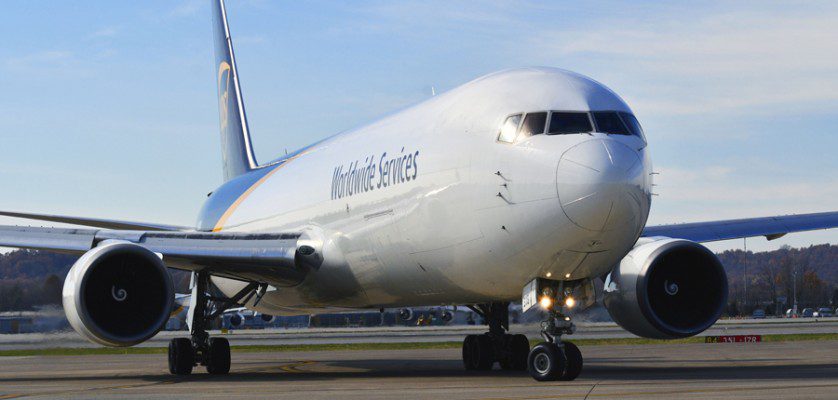SEATTLE — Boeing announced Dec. 21, 2021, an order for 19 767 Freighters from UPS highlighting the 767 Freighter’s outstanding operational efficiency and payload capability to serve its customers at a time of robust air cargo demand.
“The Boeing 767 is the most versatile aircraft we operate,” said UPS U.S. Operations President Nando Cesarone. “Our plan to purchase 19 aircraft and take delivery between 2023 and 2025 aligns with the strategy and capital expenditure forecast shared during our June 2021 Investor and Analyst Day. It also supports our sustainability efforts by making our fleet more efficient and improving reliability,” he said.
The deal adds to a record-breaking year for Boeing freighter sales, including 80 firm orders for new widebody freighters and more than 80 orders for Boeing Converted Freighters. In 2021 air cargo demand has surged due to an expansion of e-commerce and express cargo markets.
“This latest order for 19 jets bookends an incredible year for the Boeing Freighter family,” said Ihssane Mounir, Boeing senior vice president of Commercial Sales and Marketing. “Since the program was launched, UPS has recognized the value of the 767 Freighter and utilized the airplane’s outstanding cargo capabilities throughout its network. These new jets will enable UPS to meet expected near-term and long-term cargo demand with the proven economics, reliability and flexibility that are synonymous with the 767 Freighter.”
Based on the 767-300ER (Extended Range) passenger jet, the 767 Freighter carries up to 52.4 tons of revenue cargo with intercontinental range, serving as a flexible platform for long-haul, regional and feeder markets. UPS was the launch customer for the 767 Freighter in 1995, and since then has ordered a total of 91 of the aircraft. The carrier currently operates 236 Boeing freighters including the 747, 757, 767 and MD-11.
Boeing’s 2021 Commercial Market Outlook forecasts an annual increase of 4% in air cargo demand (Freight Tonne Kilometers) over the next 20 years. With more than 270 orders since program launch, the 767 Freighter continues to play a key role in supporting this demand, together with a global freighter fleet predicted to grow by 70 percent by 2040.












